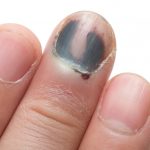
A micronutrient in human breast milk may provide significant benefit to developing newborn brains, according to new research that sheds light on the link between nutrition and brain health. Scientists looked at this sugar molecule in rodents and in human neurons. They said the micronutrient, called myo-inositol, may lead to improved infant formulas. “The current research does indicate that for circumstances where breastfeeding is not possible, it may be beneficial to increase the levels of myo-inositol in infant formula,” said study co-author Thomas Biederer. Myo-inositol may also play a part in the aging brain, according to the research conducted at the Jean Mayer USDA Human Nutrition Research Center on Aging (HNRCA) at Tufts University in Boston. “Forming and refining brain connectivity from birth is guided by genetic and environmental forces as well as by human experiences,” Biederer, a senior scientist on the neuroscience and aging team at the HNRCA, said in a Tufts news release. He is also a faculty member at the Yale School of Medicine. “As a neuroscientist, it’s intriguing to me how profound the effects of micronutrients are on the brain,” Biederer said. “It’s also amazing how complex and rich human breast milk is, and I now think it is conceivable that its composition is dynamically changing to support different stages of infant brain development.” The researchers compared human milk samples collected… read on > read on >


















